Alternative Investment Funds (AIFs) have emerged as a compelling option for sophisticated investors seeking diversification and potentially superior returns. But venturing into AIFs requires a clear understanding of their unique characteristics that go beyond simply knowing what they are and their categories.
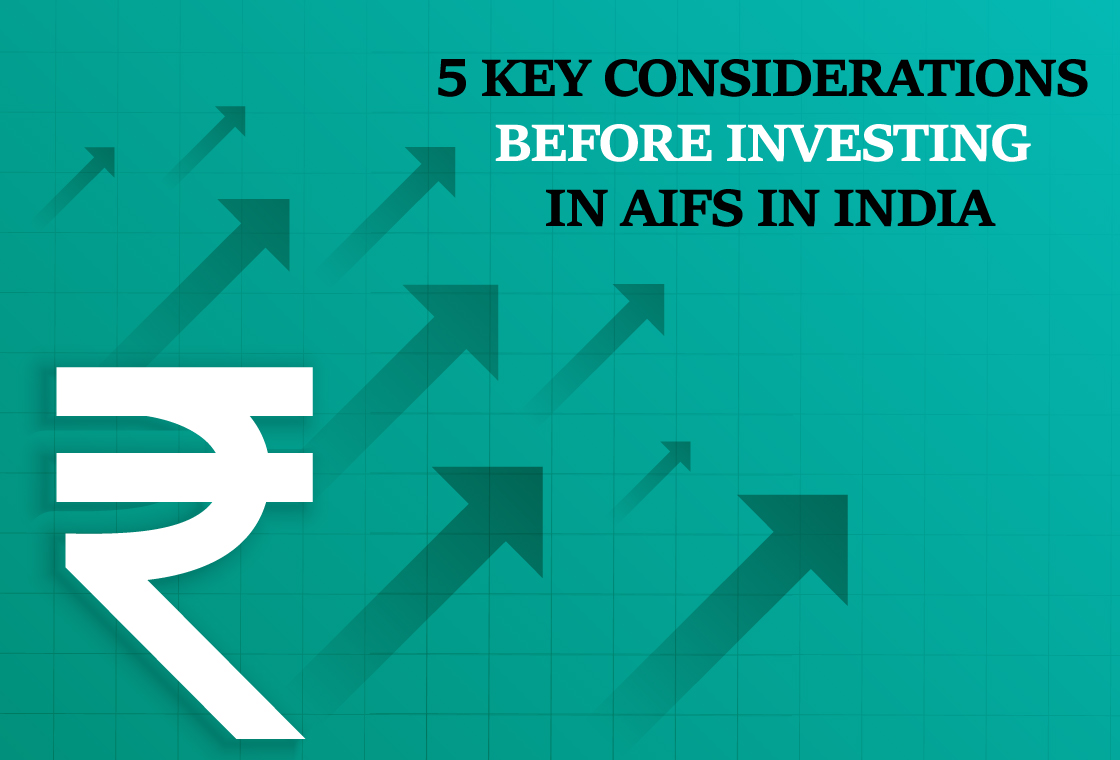
This blog delves into five crucial aspects you should consider before incorporating AIFs into your investment Portfolios.
1. Investment Strategies and Risk Profiles
Unlike mutual funds with a more standardised approach, AIFs encompass a diverse range of investment strategies, each with its own risk-return profile. These strategies involve investing in assets beyond traditional stocks and bonds, such as private equity, venture capital, hedge funds, real estate, and even commodities. So, understanding them is key.
- Category I AIFs - Focus on socially and economically desirable sectors like infrastructure development, Venture Capital, SMEs (Small and Medium Enterprises), and startups. They offer a blend of positive social impact and potential for high returns. However, they may involve higher illiquidity and longer investment horizons compared to other categories.
- Category II AIFs - Primarily invest in Private Equity & debt instruments, offering fixed-income opportunities like corporate bonds and government securities. While generally less risky than other categories, they are still susceptible to interest rate fluctuations and credit risk associated with the underlying debt instruments.
- Category III AIFs - Offer the most flexibility but also carry the highest risk. They may employ complex strategies like leverage and short selling in hedge funds or invest in unlisted companies through Private Investment in Public Equity (PIPE) transactions. These strategies can potentially generate high returns but also expose you to significant market volatility and potential losses.
2. Minimum Investment Threshold and Investor Suitability
AIFs cater to sophisticated investors due to a significant minimum investment requirement, typically exceeding Rs 1 crore. This threshold ensures investors have the financial capacity to handle the inherent risks associated with AIFs, which can be higher than those associated with traditional investments.
Sophisticated investors typically possess a combination of the following:
High Net-Worth - They have substantial investable assets to meet the minimum investment requirement.
Investment Experience - They possess a deep understanding of financial markets and the complexities involved in alternative investments.
Risk Tolerance - They have a high tolerance for risk, as AIFs can be more volatile than traditional investments.
3. Liquidity Considerations
Unlike readily tradable stocks in mutual funds, many AIF investments are illiquid. This means they cannot be easily sold on a stock exchange and may have lock-in periods restricting withdrawals for a specific timeframe.
Matching your investment horizon to the AIF's lock-in period is vital. If you anticipate needing access to your capital within a short timeframe, AIFs with extended lock-in periods may not be suitable for your investment goals.
4. Fees and Expenses
AIFs typically come with different fees compared to traditional mutual funds.
These fees can encompass:
Management Fees - Compensation paid to the fund manager for managing the AIF.
Performance Fees - Incentive fees paid to the fund manager if the AIF outperforms a predetermined benchmark.
Carried Interest - A share of the profits earned by the AIF after deducting fees and expenses, paid to the fund manager.
Scrutinising the fee structure is crucial to ensure it aligns with the AIF's value proposition. High fees can significantly erode potential returns, so it's important to assess whether the fees are justified by the AIF's track record and the complexity of the investment strategy.
5. Manager Expertise and Track Record
The success of an AIF hinges heavily on the skills and experience of the fund manager.
Conduct thorough due diligence to assess the following:
Track Record - Evaluate the fund manager's past performance in managing similar AIFs. Look for a consistent track record of generating returns that meet or exceed the stated investment objectives.
Investment Philosophy - Understand the fund manager's approach to investing and risk management. Does it align with your own investment philosophy and risk tolerance.
Team Expertise - Research the team managing the AIF. Assess their qualifications and experience in the specific asset class the AIF invests in.
Recent Blogs
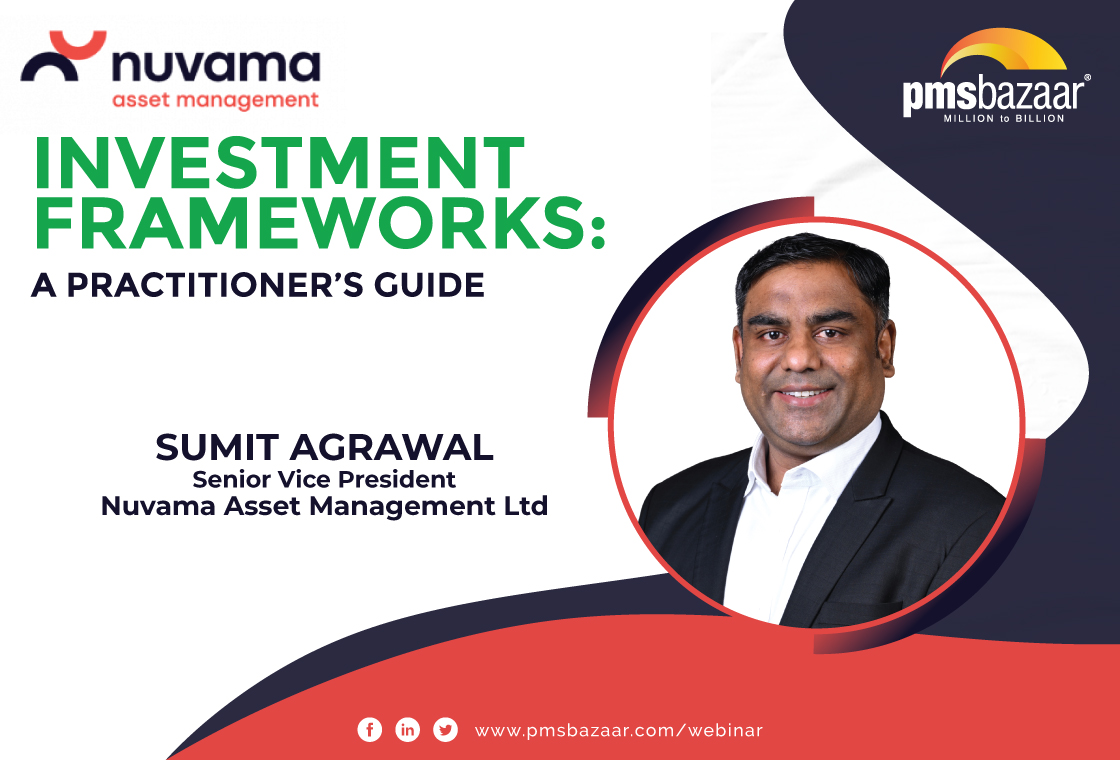
Investment Frameworks : A Practitioner’s Guide
PMS Bazaar recently organized a webinar titled “Investment Frameworks: A Practitioner’s Guide,” which featured Mr. Sumit Agrawal, Senior Vice President, Nuvama Asset Management Limited. This blog covers the important points shared in this insightful webinar.
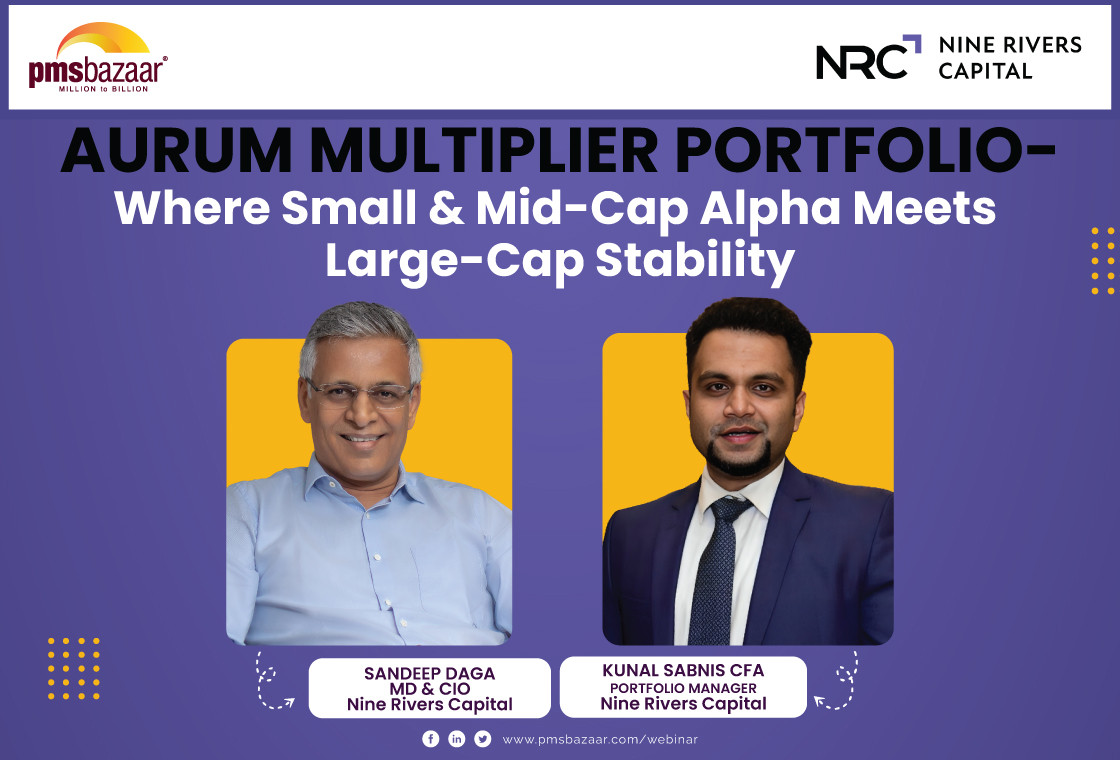
Aurum Multiplier Portfolio - Where Small and Mid-Cap Alpha Meets Large-Cap Stability
PMS Bazaar recently organized a webinar titled “Aurum Multiplier Portfolio - Where Small and Mid-Cap Alpha Meets Large-Cap Stability,” which featured Mr. Sandeep Daga, MD& CIO, Nine Rivers Capital and Mr. Kunal Sabnis, Portfolio Manager, Nine Rivers Capital. This blog covers the important points shared in this insightful webinar.

Flat Markets, Wide Outcomes: How 484 PMS Strategies Performed in Dec 2025
December 2025 was a month where market returns stayed close to flat, with the Nifty 50 TRI at -0.28% and the BSE 500 TRI at -0.24%.
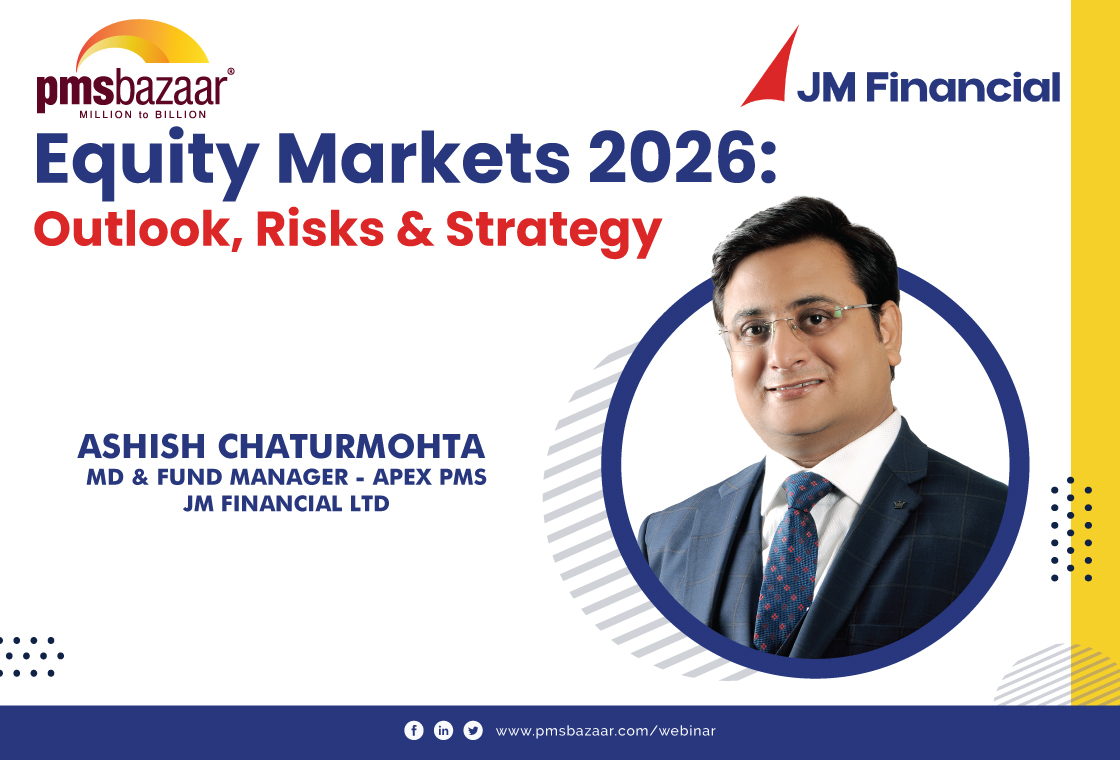
Equity Markets 2026: Outlook, Risks and Strategy
PMS Bazaar recently organized a webinar titled “Equity Markets 2026: Outlook, Risks and Strategy,” which featured Mr. Ashish Chaturmohta, MD & Fund Manager – APEX PMS, JM Financial Limited. This blog covers the important points shared in this insightful webinar.

MICRO CAPS: The Dark Horses of the Indian Equity Market
PMS Bazaar recently organized a webinar titled “MICRO CAPS: The Dark Horses of the Indian Equity Market,” which featured Mr. Rishi Agarwal and Mr. Adheesh Kabra, both Co-Founders and Fund Managers, Aarth AIF. This blog covers the important points shared in this insightful webinar.
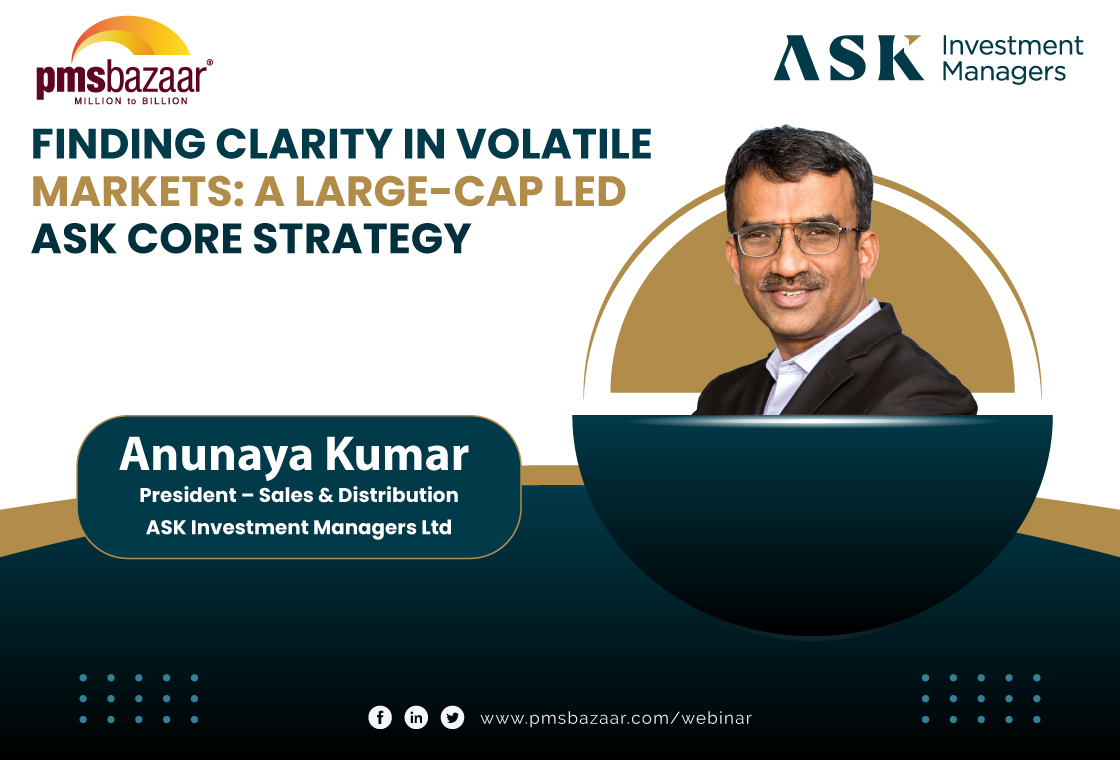
Finding Clarity in Volatile Markets: A Large-Cap Led ASK CORE Strategy
PMS Bazaar recently organized a webinar titled “Finding Clarity in Volatile Markets: A Large-Cap Led ASK CORE Strategy,” which featured Mr.Anunaya Kumar, President – Sales and Distribution ASK Investment Managers Limited. This blog covers the important points shared in this insightful webinar.
.jpg)
Passively Active Investing — A Modern Investor’s Lens on ETF-Based PMS
PMS Bazaar recently organized a webinar titled “Passively Active Investing — A Modern Investor’s Lens on ETF-Based PMS,” which featured Mr. Karan Bhatia, Co-Founder and Co-Fund Manager , Pricebridge Honeycomb ETF PMs. This blog covers the important points shared in this insightful webinar.
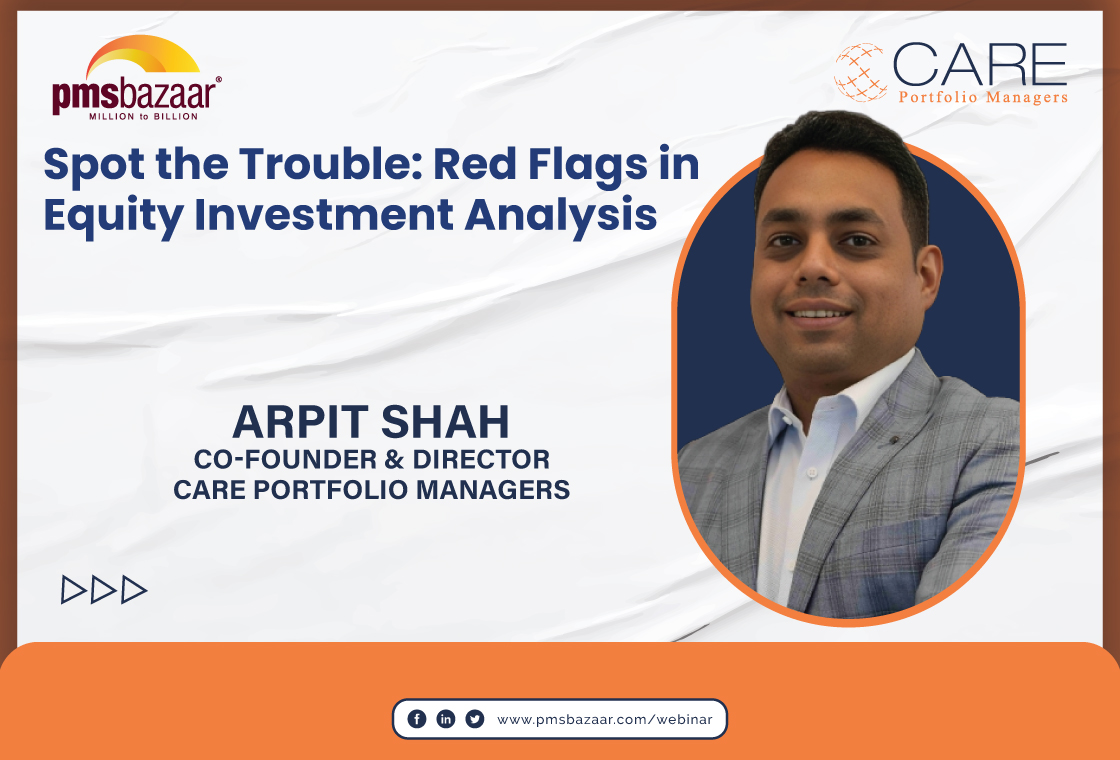
Spot the Trouble: Red Flags in Equity Investment Analysis
PMS Bazaar recently organized a webinar titled “Spot the Trouble: Red Flags in Equity Investment Analysis,” which featured Mr. Arpit Shah, Co-Founder & Director, Care Portfolio Managers. This blog covers the important points shared in this insightful webinar.

